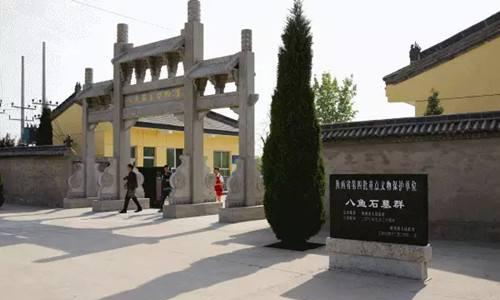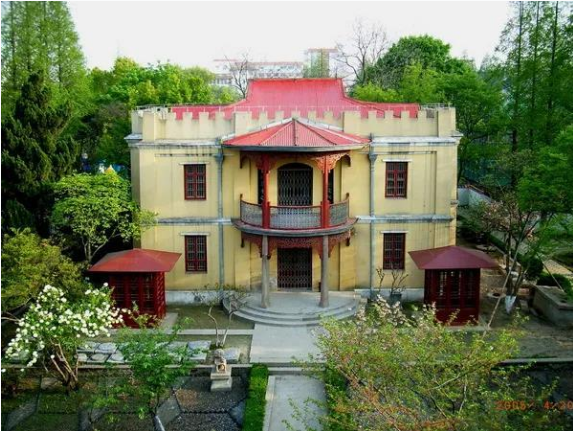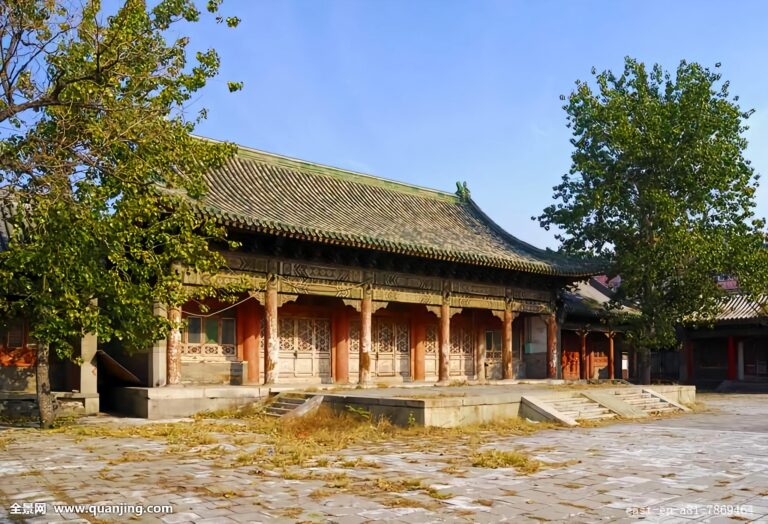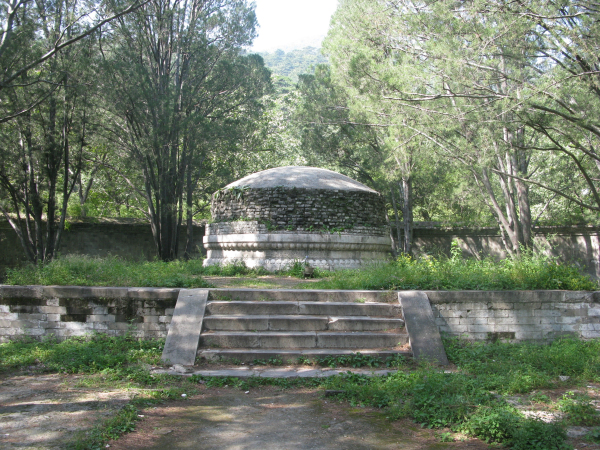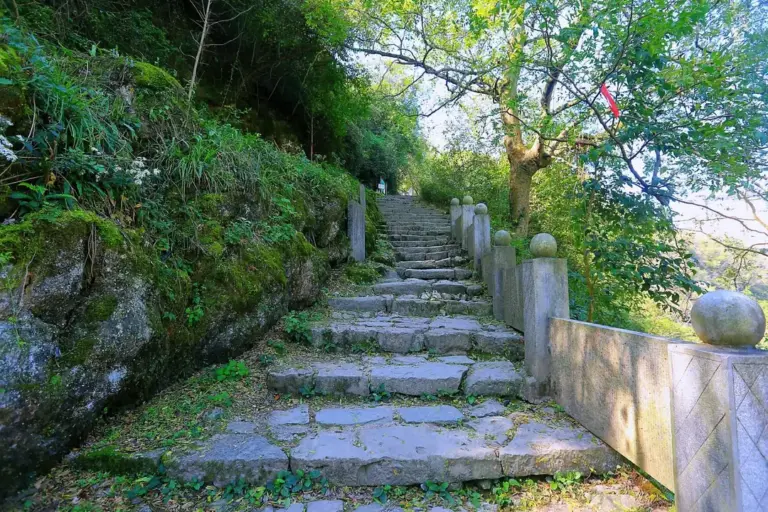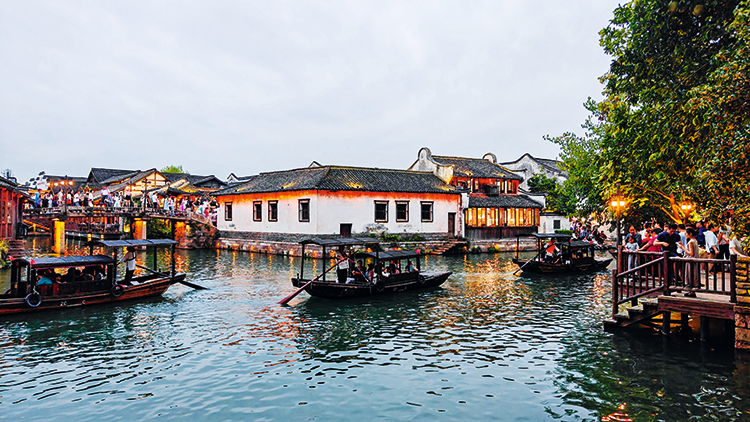Step into History: The Unforgettable Experience of Liaocheng Jingyanggang Yizhi
An Essential Guide to Visiting Liaocheng Jingyanggang Yizhi
In This Guide
- An Essential Guide to Visiting Liaocheng Jingyanggang Yizhi
- The Rich History of Liaocheng Jingyanggang Yizhi
- Main Highlights: What to See at Liaocheng Jingyanggang Yizhi
- Planning Your Visit: A Practical Guide
- Tickets, Hours, and Booking
- How to Get There
- Local Cuisine and Accommodation
- Frequently Asked Questions
- Final Thoughts on Your Trip
Nestled in the picturesque landscape of Shandong Province, approximately 16 kilometers east of Liaocheng, lies the enchanting Jingyanggang Yizhi (景阳岗遗址). This site is steeped in history and folklore, echoing tales from the classic Chinese novel “Water Margin” (水浒传), where the legendary hero Wu Song famously battled a ferocious tiger. The allure of this destination not only lies in its captivating stories but also in its rich archaeological significance, being home to the ancient Longshan Culture site, which dates back thousands of years.
Spanning over 33.3 hectares, the Jingyanggang scenic area is characterized by its undulating hills, lush greenery, and a sense of untouched wilderness that invites visitors to explore its hidden treasures. From the famed “Three Bowls Never Pass” hotel, where guests can immerse themselves in local culinary traditions, to sacred sites like the Wu Song Temple and the Tiger Pool, each corner of this area offers a glimpse into the vibrant tapestry of Chinese culture and history.
As a designated National 4A scenic area, Jingyanggang is not only a testament to the enduring legacy of Wu Song but also a vital piece of the broader narrative of ancient Chinese civilization. Whether you are a history buff, a nature lover, or an adventurous spirit, a visit to Jingyanggang promises an unforgettable journey through time and myth, where the past and present intertwine beautifully in the heart of Shandong.
The Rich History of Liaocheng Jingyanggang Yizhi
The Liaocheng Jingyanggang Yizhi, located in the Yanggu County of Shandong Province, is a site steeped in both legend and archaeological significance. This area is primarily celebrated as the setting of the legendary tale of Wu Song, a famous character from the classic Chinese novel “Water Margin” (Shui Hu Zhuan), where he famously defeats a tiger. This folklore has transformed the site into a cultural and tourist attraction, drawing visitors eager to connect with the narrative that has captivated audiences for centuries.
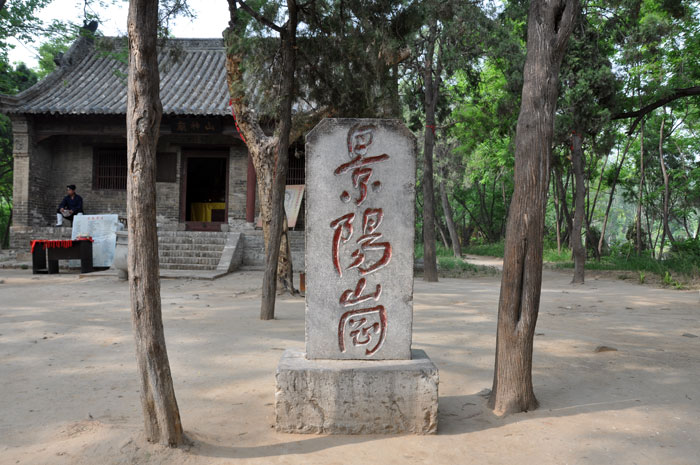
Liaocheng Jingyanggang Yizhi.
Archaeologically, the Jingyanggang site is recognized as a crucial remnant of the Longshan culture, a prehistoric civilization that thrived in the Yellow River basin. Systematic excavations began in 1973, led by the Shandong Provincial Archaeological Team, revealing a wealth of artifacts that highlight the area’s historical significance. These excavations uncovered two primary mounds, or “gangs,” which are distinguished as the southern and northern hills, separated by a roadway. The site spans an impressive area, with the southern mound measuring approximately 86 meters in length and 75 meters in width, while the northern mound is smaller yet equally important.
The findings at Jingyanggang include a variety of pottery, predominantly gray ware, along with black and red pottery, which provides insight into the daily lives and artistic expressions of the Longshan people. Notably, the site has yielded numerous pottery shards featuring intricate decorative patterns such as cord marks and leaf vein designs. Other artifacts include stone tools and bone implements, painting a vivid picture of the technological and cultural advancements of the era.
In recognition of its archaeological and cultural importance, Jingyanggang was designated as a provincial-level key cultural relic protection unit in 1978. This status underscores the site’s value not only as a tourist destination but also as a vital resource for historians and archaeologists studying the development of early Chinese civilization.
The juxtaposition of the legendary tales of Wu Song and the tangible remnants of Longshan culture at Jingyanggang creates a captivating narrative that continues to attract visitors. This blend of myth and history not only enriches the cultural landscape of Shandong Province but also offers a unique glimpse into the ancient world, making it a must-visit for anyone interested in China’s rich heritage.
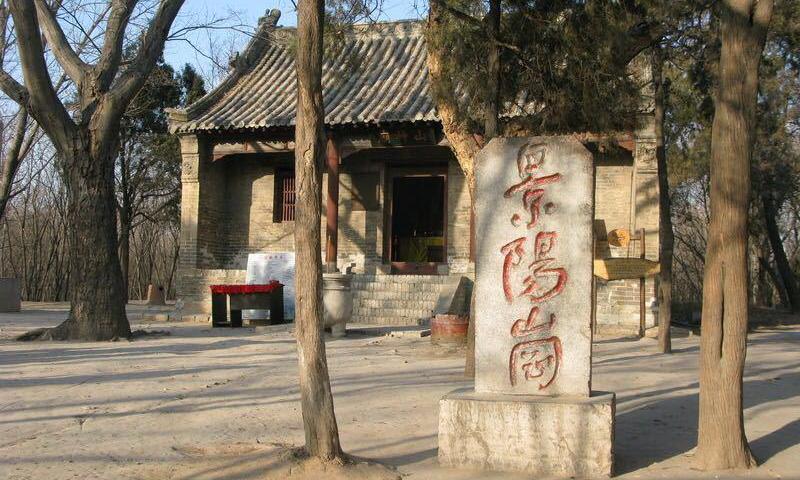
Liaocheng Jingyanggang Yizhi.
Main Highlights: What to See at Liaocheng Jingyanggang Yizhi
Nestled in the heart of Shandong Province, the Jingyanggang Yizhi (景阳岗遗址) offers a captivating glimpse into China’s legendary past, particularly through its ties to the classic novel, “Water Margin” (水浒传). Here are the key highlights that make this historical site a must-visit:
1. Legendary Heritage:
Jingyanggang is famously known as the site where the heroic figure Wu Song is said to have slain a tiger, an event immortalized in the pages of “Water Margin.” This connection to folklore gives visitors a unique narrative to explore as they walk through the scenic area.
2. Scenic Beauty:
The landscape of Jingyanggang is characterized by rolling hills and lush greenery, creating a tranquil atmosphere perfect for leisurely strolls. The area spans approximately 33.3 hectares, where visitors can immerse themselves in nature while soaking up the historical ambiance.
3. Cultural Landmarks:
The site is home to numerous attractions that celebrate both its folklore and archaeological significance. Key sites include the Wu Song Temple, the “Three Bowls Never Over the Hill” hotel, and the Tiger Pool, where you can see live tigers in a safe environment. The presence of ancient stone tablets and relics adds layers of historical depth to the experience.
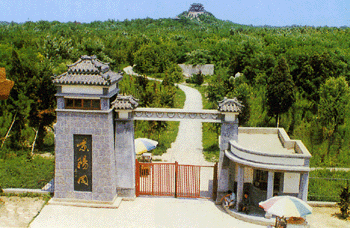
Liaocheng Jingyanggang Yizhi.
4. Archaeological Significance:
Jingyanggang is also recognized for its archaeological importance, being the site of the Longshan Culture ruins. Excavations here have revealed artifacts that provide insight into the region’s ancient civilizations, making it a vital location for history enthusiasts.
5. Interactive Experiences:
Visitors can engage with the site by participating in various themed activities, such as archery at the ancient archery ground or enjoying traditional foods at the local eateries. The Wu Song tiger-fighting performance is a popular highlight, immersing guests in the legendary tales of bravery and wit.
6. Accessibility and Amenities:
Located approximately 16 kilometers east of Yanggu County, Jingyanggang is easily accessible by car or public transport. The site has facilities like guided tours, restaurants, and souvenir shops, ensuring a comfortable visit for all.
7. Nearby Attractions:
After exploring Jingyanggang, visitors can easily continue their journey to nearby Lion Tower (狮子楼), another cultural landmark steeped in the stories of “Water Margin,” featuring replicas of historical scenes and traditional performances that further enrich the experience.
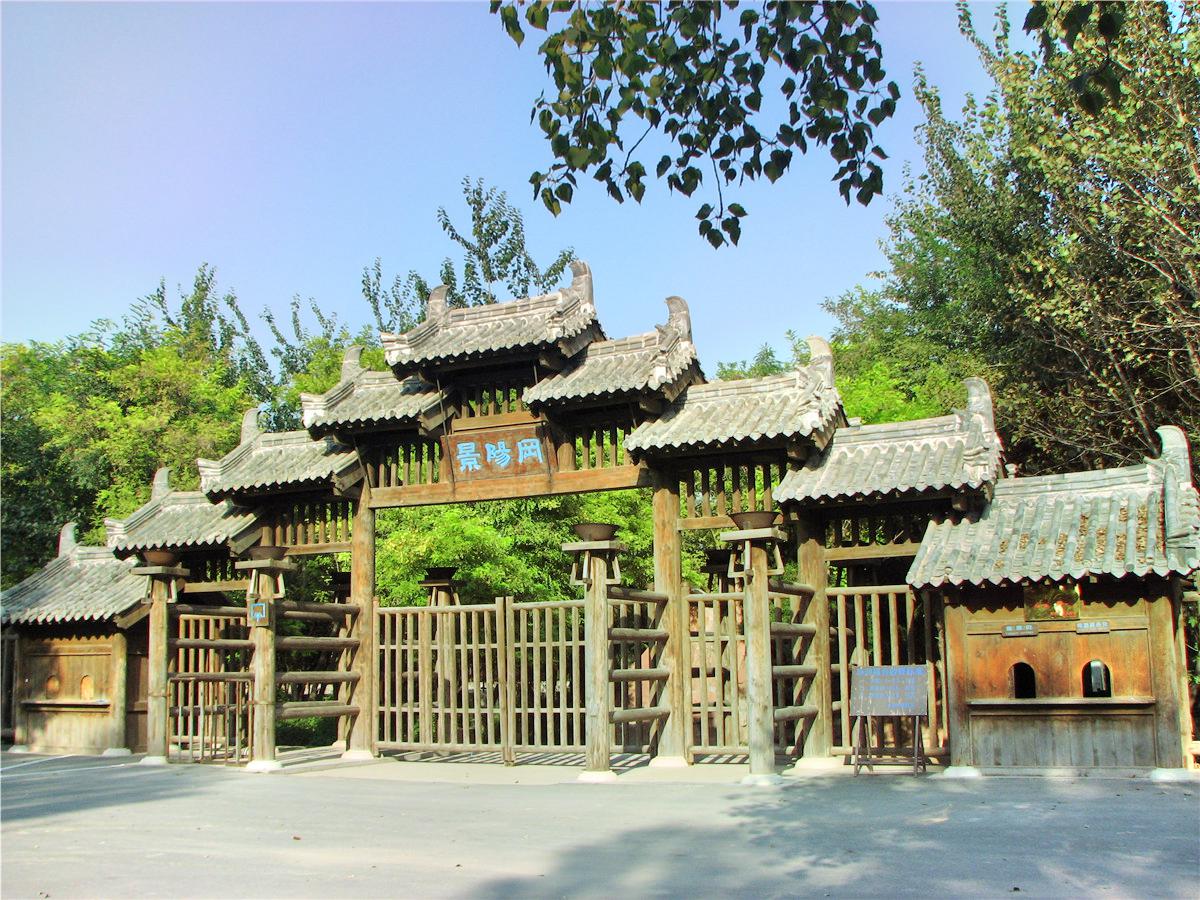
Liaocheng Jingyanggang Yizhi.
In summary, a visit to Jingyanggang Yizhi not only offers a journey through captivating folklore and scenic beauty but also an opportunity to delve into the rich tapestry of Chinese history. Whether you’re an avid reader of classical literature or simply a lover of nature and culture, this site promises an unforgettable experience.
Planning Your Visit: A Practical Guide
Liaocheng Jingyanggang Yizhi, often referred to as the Jingyanggang Ruins, is a fascinating destination located in the Yanggu County of Shandong Province, China. This site is steeped in history and folklore, particularly known for its connection to the classic Chinese novel “Water Margin” (Shui Hu Zhuan), where the legendary character Wu Song famously battled a tiger. Here’s everything you need to know to make the most of your visit to this unique cultural landmark.
Getting There
By Car: The easiest way to reach Jingyanggang is by car. From the city of Liaocheng, take the Jicheng Expressway to Yanggu County, then follow the signs to the Jingyanggang scenic area, which is about 16 kilometers east of the county center. The total driving time is around an hour.
Public Transportation: If you prefer public transport, you can take a bus from Liaocheng to Yanggu County. Once in Yanggu, local buses and taxis can take you directly to the Jingyanggang Ruins.
Opening Hours and Admission
Opening Hours: The scenic area is open year-round, but the hours may vary by season. Generally, the park operates from:
– Summer (April to October): 8:00 AM to 6:30 PM
– Winter (November to March): 9:30 AM to 5:00 PM
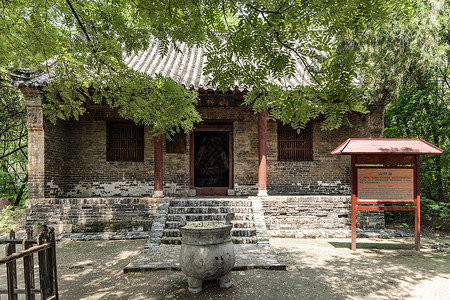
Liaocheng Jingyanggang Yizhi.
Admission Fee: The entrance ticket is priced at approximately 30 yuan, which grants you access to all major attractions within the site.
Exploring Jingyanggang
The site covers an expansive area of 33.3 hectares, featuring rolling hills, lush greenery, and a variety of attractions. Here are some highlights not to miss:
-
Wu Song’s Tiger Fighting Area: This is the central attraction, where visitors can engage in performances and reenactments of Wu Song’s legendary battle with the tiger. Don’t miss the opportunity to take photos with the impressive statues and backdrops.
-
San Wan Bu Guo Gang Hotel: Experience local cuisine and traditional hospitality at this themed hotel, which draws inspiration from the tales of “Water Margin”. It’s a great spot to relax and enjoy the local flavors.
-
Wu Song Temple: Located on a hilltop, this temple is dedicated to the hero Wu Song and offers a serene atmosphere for reflection and admiration of the surrounding landscape.
-
Tigers’ Pool and Monkey Mountain: For families, these areas provide interactive experiences. At the Tigers’ Pool, you can observe live tigers, while Monkey Mountain features playful monkeys in a natural habitat.
-
Ancient Archery Range: Test your archery skills at the ancient range, where you can learn about traditional techniques and even try hitting the target yourself.
-
Jingyang Lake: Complete your visit with a peaceful walk around the lake or enjoy boat rides on the tranquil waters. This area is perfect for relaxation and taking in the natural beauty.
Where to Stay
For those looking to stay overnight, there are various accommodation options in and around Yanggu County. A recommended place is the Home Inn – Neo, which offers comfortable lodging at reasonable rates. Additionally, you can explore other local hotels through popular travel websites.
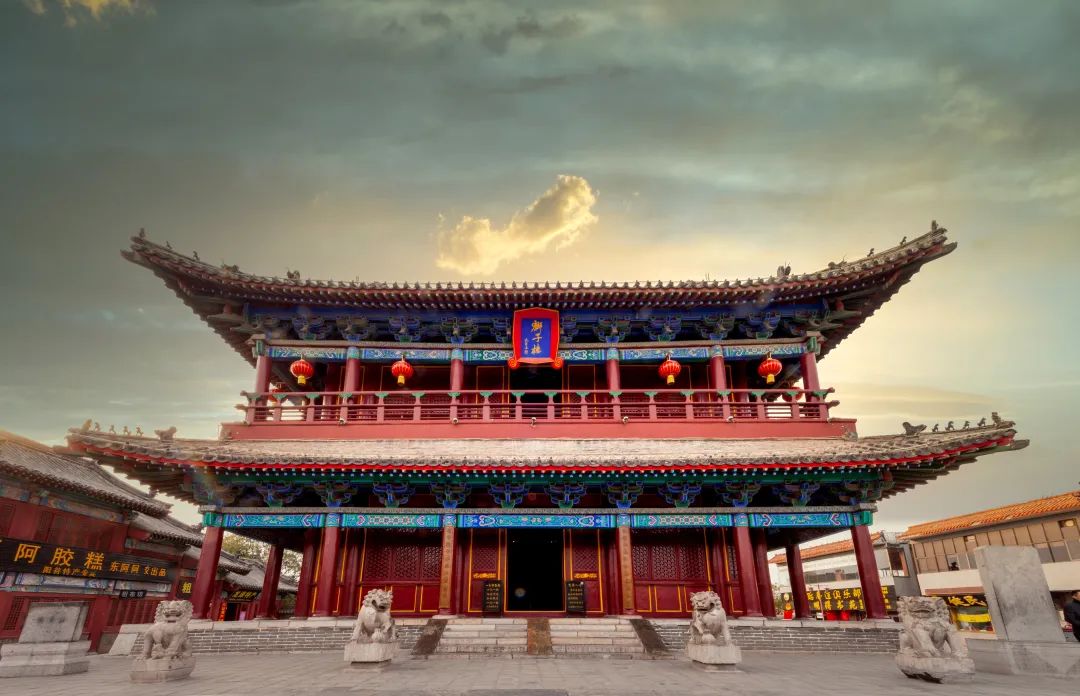
Liaocheng Jingyanggang Yizhi.
Local Cuisine
Don’t leave Jingyanggang without trying some local delicacies. Here are a few must-try dishes:
– Yanggu Bag Chicken: A traditional dish known for its unique preparation and flavor.
– Hollow Glass Balls: A local snack that’s both crispy and flavorful.
– Wu Da Lang’s Meat Buns: Named after another character from “Water Margin”, these buns are a popular street food.
Tips for Visitors
- Best Time to Visit: The ideal time to visit is during the spring and autumn months when the weather is mild, making it perfect for outdoor activities.
- Plan Your Day: Allocate a full day to explore the area, as there is plenty to see and do. Start early to avoid crowds, especially on weekends and holidays.
- Bring Comfortable Shoes: The terrain can be uneven, so wear sturdy footwear suitable for walking and climbing.
By following this practical guide, you’ll be well-prepared to explore the rich history and captivating stories that the Jingyanggang Ruins have to offer. Enjoy your adventure into this remarkable piece of Chinese heritage!
Tickets, Hours, and Booking
When planning your visit to Liaocheng Jingyanggang Yizhi (景阳岗遗址), it’s essential to know the ticket prices and visiting hours to ensure a smooth experience.
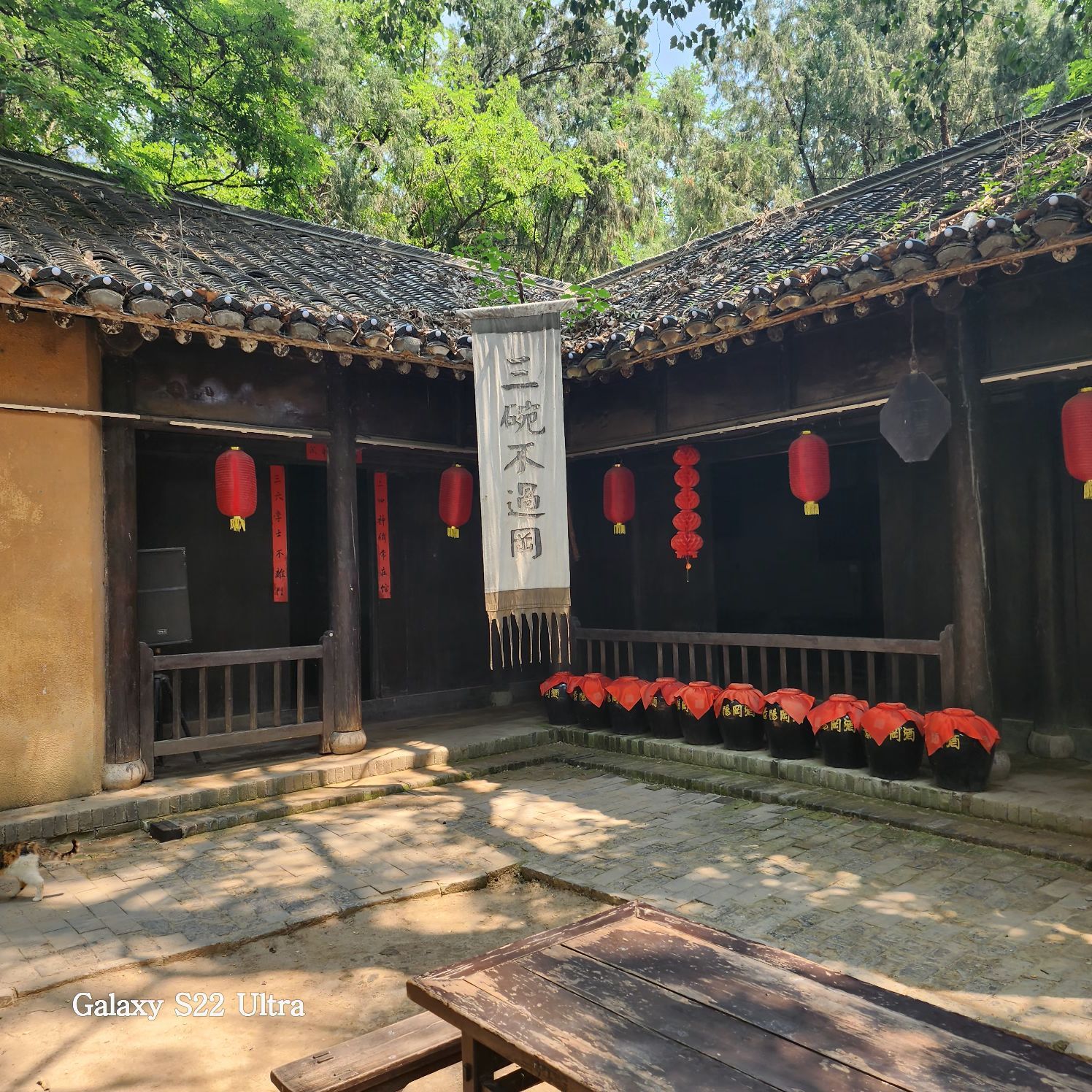
Liaocheng Jingyanggang Yizhi.
Ticket Pricing
- Jingyanggang Site (景阳岗遗址): Entry is priced at 30 CNY per person. This fee grants you access to explore the various attractions within the site, including the iconic locations associated with the legendary tale of Wu Song and the tiger.
- Lion Tower (狮子楼): The ticket for this scenic area is 20 CNY. Within the Lion Tower complex, you can delve into the rich narratives of the “Water Margin” and experience performances related to its characters.
Opening Hours
- Jingyanggang Site:
- Summer: 8:00 AM – 6:30 PM
- Winter: 9:30 AM – 5:00 PM
- Lion Tower: Typically open from 9:00 AM to 5:00 PM daily.
Additional Information
It’s advisable to arrive early, especially during peak tourist seasons, to make the most of your visit and avoid long queues. Group discounts may be available, so consider inquiring about these if traveling in a larger party. Enjoy your journey through history and legend at these captivating sites!
How to Get There
Traveling to Liaocheng Jingyanggang Yizhi (景阳岗遗址) offers an enriching experience steeped in history, particularly for fans of the classic Chinese novel “Water Margin.” Here’s how to navigate your way to this fascinating cultural site.
Getting There
Location:
Jingyanggang Yizhi is located approximately 16 kilometers east of Yanggu County in Liaocheng, Shandong Province. The site is easily accessible by various means of transportation.
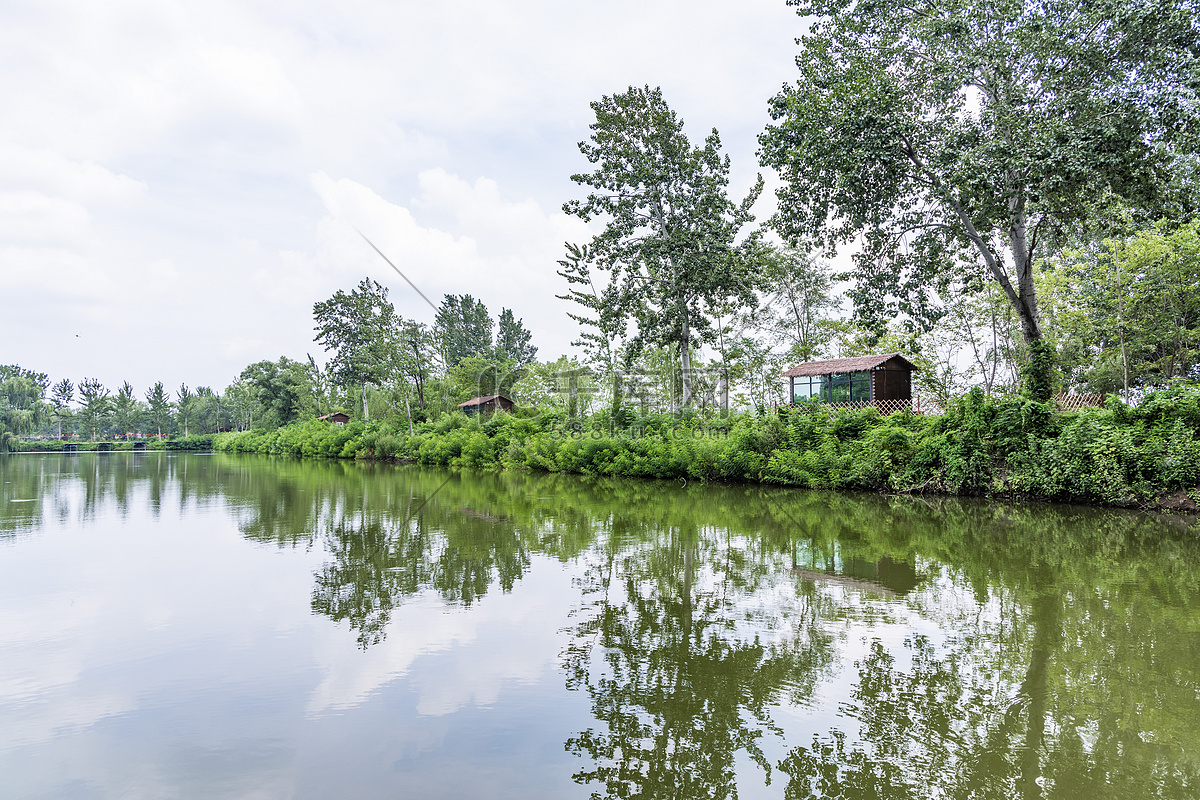
Liaocheng Jingyanggang Yizhi.
By Car:
For those driving, the journey is straightforward. You can take the Jichao Expressway (济聊高速) and exit at the Liaocheng junction. From there, follow the signs towards Yanggu County and continue south on Liaoyang Road until you reach the intersection with Qinan Road. Turn left onto Qinan Road and continue for about 8 kilometers, then make a right and drive straight for an additional 4 kilometers. The scenic area will be on your right. Parking is available near the entrance, making it convenient for visitors.
By Public Transportation:
If you prefer using public transport, you can take a bus from the Liaocheng Central Bus Station to Yanggu County. These buses run frequently and take about an hour. Once in Yanggu, you can catch a local bus or a taxi to the Jingyanggang scenic area. The local bus service to the site is efficient, typically taking around 20 minutes from the county center.
Train Services:
For those coming from further away, the closest major railway station is in Liaocheng city. High-speed trains connect Liaocheng to major cities like Jinan and Beijing. After arriving in Liaocheng, you can take a taxi or a bus to reach Yanggu County and then continue to Jingyanggang.
Arrival and Navigation
Upon arriving at Jingyanggang, you will find a well-marked entrance that leads you into the scenic area, which spans 33.3 hectares. The site is renowned for its lush landscapes and historical significance, featuring more than twenty attractions, including the famed “Wu Song’s Tiger Struggle” site, several temples, and a picturesque lake.
Tips for Travelers
- Best Time to Visit: The area is beautiful year-round, but spring and autumn offer particularly pleasant weather for exploration.
- Entrance Fees: The admission price is modest, typically around 30 RMB, making it an affordable outing.
- Local Amenities: Facilities such as restrooms, dining options, and souvenir shops are available within the park, ensuring a comfortable visit.
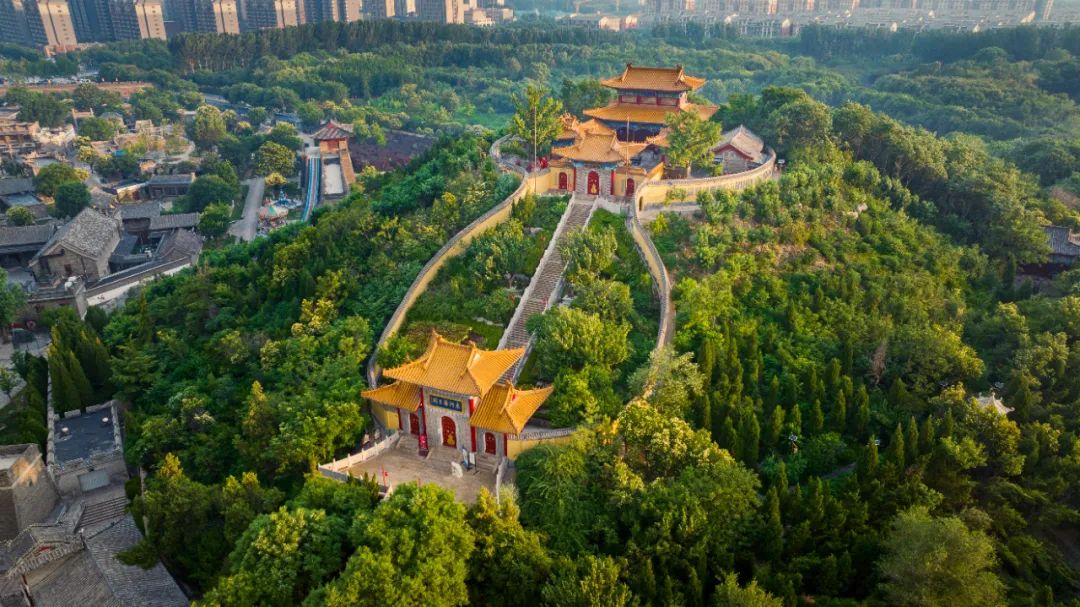
Liaocheng Jingyanggang Yizhi.
By planning your route ahead of time and choosing the mode of transportation that suits you best, your visit to Liaocheng Jingyanggang Yizhi can be both enjoyable and memorable.
Local Cuisine and Accommodation
When visiting the Liaocheng Jingyanggang Yizhi (景阳冈遗址), you’ll find a delightful blend of local cuisine and comfortable accommodations that enhance your experience of this historical site.
Culinary Delights
Food lovers will appreciate the opportunity to indulge in local specialties, which reflect the rich culinary heritage of the region. Some must-try dishes include:
- Yanggu Budai Chicken (阳谷布袋鸡): A unique dish where chicken is cooked with a variety of spices and served in a cloth bag, allowing the flavors to meld beautifully.
- Hollow Glazed Balls (空心琉璃丸子): These delightful round dumplings have a crispy exterior and a soft, savory filling that is sure to satisfy your palate.
- Shouzhang Pork Rolls (寿张肉旋子): Tender pork rolled with aromatic herbs and spices, offering a taste that is both hearty and flavorful.
- Southern Fried Meatballs (南煎丸子): A local favorite, these meatballs are pan-fried to perfection, delivering a crispy texture outside while remaining juicy inside.
- Wusong’s Scallion Pancakes (武大郎烧饼): Inspired by the legendary character from “Water Margin,” these flaky pancakes are a tasty snack that pairs well with a warm cup of tea.

Liaocheng Jingyanggang Yizhi.
For a truly immersive experience, consider dining at the Sanwan Bugua Restaurant (三碗不过冈酒店) located within the Jingyanggang scenic area. Here, you can enjoy traditional dishes while soaking in the ambiance that nods to the famed tale of Wusong and the tiger.
Comfortable Accommodations
After a day of exploration, a good night’s rest is essential. The Yanggu Hotel (阳谷宾馆) is a popular choice among visitors. Located conveniently near the main attractions, it offers comfortable rooms equipped with modern amenities, ensuring a relaxing stay. The hotel’s friendly staff can also assist you with travel tips and local insights.
For those seeking alternative options, platforms like Ctrip provide a range of accommodations to suit various budgets. Whether you prefer boutique hotels, cozy guesthouses, or more economical stays, you’ll find something that meets your needs.
In summary, your journey to Liaocheng Jingyanggang Yizhi will be complemented by the delicious local cuisine and comfortable lodgings, allowing you to fully immerse yourself in the area’s rich history and culture.
Frequently Asked Questions
-
What are the main attractions at Liaocheng Jingyanggang Yizhi?
The site features numerous attractions including the “Wu Song Fights the Tiger” monument, the Wu Song Temple, the Three Bowls Inn, the Tiger Pool, Monkey Mountain, and various historical relics from the Longshan Culture. It’s an immersive experience into the legendary tales from the classic Chinese novel “Water Margin.” -
How much does it cost to enter the Jingyanggang site?
Entry to Jingyanggang Yizhi is reasonably priced at 30 RMB per person, making it an affordable destination for families and travelers alike. -
What is the best time of year to visit Jingyanggang Yizhi?
The best time to visit is during the summer months when the weather is warm and conducive for outdoor exploration. However, spring and autumn also offer pleasant conditions for sightseeing. -
How do I get to Jingyanggang Yizhi from the nearest city?
The site is located about 16 kilometers east of Yanggu County. Visitors can reach it by car, taxi, or public bus from Yanggu. If driving, take the Jichao Expressway and follow local roads to the site. -
Are there dining options available within the Jingyanggang Yizhi area?
Yes, visitors can enjoy local cuisine at various restaurants and inns within the site, including the Three Bowls Inn, where you can experience traditional dishes inspired by the “Water Margin” tales. -
Is there accommodation available near Jingyanggang Yizhi?
Yes, there are several hotels and guesthouses in the vicinity of the site. For a more immersive experience, consider staying at local inns that offer cultural themes related to the “Water Margin.” -
What kind of activities can visitors participate in?
Visitors can explore the historical sites, take part in archery at the ancient archery field, enjoy scenic walking paths around the lake, and watch live performances related to legends of Wu Song and the “Water Margin.” -
Is Jingyanggang Yizhi suitable for families with children?
Absolutely! The site provides engaging activities and educational experiences that are enjoyable for visitors of all ages. Children can especially enjoy the various animal exhibits and interactive performances.
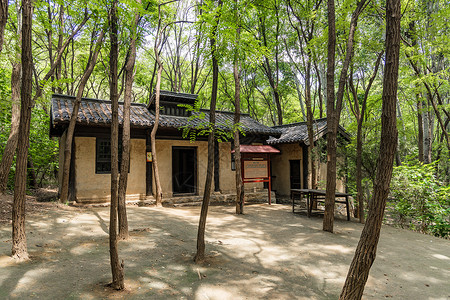
Liaocheng Jingyanggang Yizhi.
Final Thoughts on Your Trip
Visiting Liaocheng Jingyanggang Yizhi is not just a journey through a beautiful landscape; it’s an immersive experience steeped in rich history and culture. This remarkable site, where the legendary tale of Wu Song and the tiger unfolds, offers an unforgettable glimpse into the stories that have shaped Chinese folklore. As you wander through the lush grounds, exploring ancient temples and the remnants of the Longshan culture, you’ll find yourself transported back in time.
The area’s natural beauty complements its historical significance, providing a serene backdrop for reflection and exploration. Whether you are indulging in local delicacies or participating in vibrant cultural performances, each moment spent here enriches your understanding of this unique region.
As you conclude your visit, take with you not just memories, but a deeper appreciation for the tales and traditions that continue to echo through these lands. Liaocheng Jingyanggang Yizhi invites travelers to experience the harmony of nature and history, reminding us that every corner of the world has a story waiting to be discovered.
